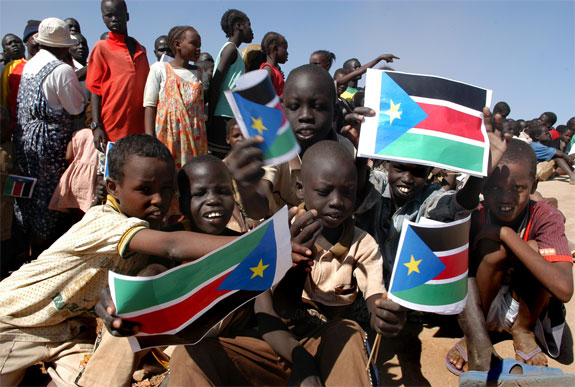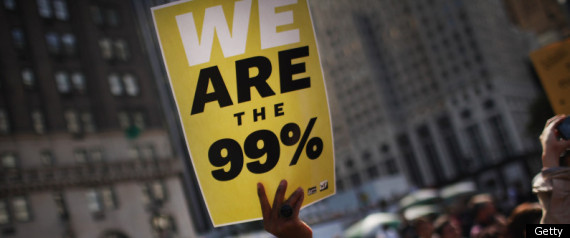#Occupy Melbourne diary: Six days of peaceful protest, then police violently attack
Green Left Weekly’s Sue Bolton has been part of the Occupy Melbourne protest since it began on October 15, 2011. Below she recounts the past week of the occupation in Melbourne’s City Square, which was broken up by a violent police assault on October 21. However, protesters have vowed to re-establish the occupation once more. For more updates on Occupy Melbourne, regularly check GLW's live blog at http://www.greenleft.org.au/node/49153.
For more activist reports on the Occupy movement, click HERE.
* * *
Day 5, October 19, 2011: Still going strong
We are still going strong with about 45 to 50 tents in City Square. I estimate there are about 100 people camping each night with many others staying until late in the night.
The occupation has been set up as a well-established occupation with a 24-hour roster for the info desk and the kitchen. The kitchen is feeding homeless people who also use the square.
(Updated Oct. 23) Occupy wave reaches Pakistan

Occupy Karachi march, October 22, 2011. Photo by Comrade Sherbaz.
Occupy Lahore!
By Farooq Tariq
Afghanistan: Predictions, obstructed justice and 10 years of war
By Rupen Savoulian
Sudan/South Sudan: Communist Party sees dangers, but also possibilities for progress

South Sudan's independence celebrations.
The tide of rebellion and revolution now sweeping Latin America is posing a serious challenge to imperialism’s brutal global rule. For anyone who wants an end to war, exploitation and oppression, Latin America’s struggles to create alternatives are crucially important.
Australia's leading socialist newspaper Green Left Weekly is strongly committed to supporting the growing “people’s power” movement in Latin America. Through our weekly articles on developments in the region, GLW strives to counter the corporate media’s many lies about Latin America’s revolutions, and to give a voice in English to the people’s movements for change.
The continent-wide rebellion is weakening imperialism’s power. As a result, it is taking increasingly threatening steps to push back the power of the people. Our solidarity, to help the people of Latin America defend and extend their tremendous achievements, is vital.
The euro on a knife edge: Are the Greeks to blame? What is the left position on the euro crisis?

On October 19 and 20, 2011, Greece will be stopped by the latest in a series of general strikes against austerity. Above and below: Workers march on October 19. All photos by WFTU International.
Photo essay: World Food Day protest at Monsanto's world headquarters
.jpg)
Photos by Don Fitz and Barbara Chicherio
October 17, 2011 -- Links International Journal of Socialist Renewal -- It ain’t easy organising anti-Monsanto pickets in St. Louis, where it seems that every other person has a relative, neighbour or friend who works for the corporate demon and is worried about its retaliation. Nevertheless, the Gateway Green Alliance and Safe Food Action St. Louis planned a demonstration as part of the October 16, 2011, World Food Day and Millions Against Monsanto nationwide events put together by the Organic Consumers Association.
Several dozen activists fighting the company’s efforts to force GMOs (genetically modified organisms) on everyone who eats food, as well as its attempt to destroy small farmers in the US and across the globe, met at the Monsanto's world headquarters on the afternoon of October 16. Soon we were joined by a couple of carloads from Occupy St. Louis and had a lively group of 50.
A big problem with picketing Monsanto’s headquarters is that Olive Boulavard traffic whizzes by at 40–50 miles per hour, meaning that drivers can’t read a sign with small or thin letters. But several of us remembered the old Burma Shave signs on two-lane highways.These are photos of the picket.
Transnational Government of Tamil Eelam seeks support from Cuba and Latin America

Visuvanathan Rudrakumaran.
By Ron Ridenour
October 4, 2011 -– Links International Journal of Socialist Renewal -- “We Tamils, inside and outside the island of Sri Lanka, still want an independent state. And because the war crimes and severe brutality of the Mahinda Rajapaksa government against our people has become well known, our cause is being spoken about all over the world”, Visuvanathan Rudrakumaran told me recently in Manhattan, New York.
A positive sign of recognition for Tamil rights is the dramatic Channel 4 UK documentary, Sri Lanka Killing Fields, shown first at a June Human Rights Council session and then worldwide.
Rudrakumaran is prime minister of the Transnational Government of Tamil Eelam (TGTE), and a prominent activist in the diaspora. He earned law degrees from the University of Colombo and Southern Methodist University. He later studied and wrote articles about self-determination at Harvard Law School
Beware of ‘social justice’ promises by international bankers

Ismail Serageldin was invited to deliver the Nelson Mandela Annual Lecture, which he titled, “The Making of Social Justice”.
Occupy Sydney, October 15, 2011. Photos by Kate Ausburn.
October 16 , 2011 -- Links International Journal of Socialist Renewal -- According to http://15october.net, protests and actions -- inspired by the Occupy Wall Street mass movement across the United States -- were to take place in more than 950 cities in more than 80 countries on October 15. Actions had already begun in some parts of the world before that.
United States: Left support for Occupy Wall Street

Below are a number of statements issued by left organisations in the United States.
For more on Occupy Wall Street, click HERE.
It is five minutes to dawn and the wind smells like freedom
By Mike Ely, Kasama Project
October 14, 2011 -- Click here for PDF version of this statement -- It is no longer five minutes to midnight. After Arab Spring leaps to Spain, and Greece, and on to New York’s Wall Street, it suddenly feels like five minutes to dawn.
We no longer need assume that there is no time to stop the world going to shit. There is an opening and we are flooding into it.
We are suddenly in a moment that is not marked by exhausted routine protests that speak for no one and speak to no one.
BDS campaign declares: 'Occupy Wall Street not Palestine!'

[For more on the BDS campaign click HERE. For more on Occupy Wall Street, click HERE.]
If a people one day wills to live fate must answer its call
And the night must fade and the chain must break– Abou-Al-kacem El-Chebbi (Tunisia)
We are part of the world’s 99% yearning for freedom, justice and equal rights!